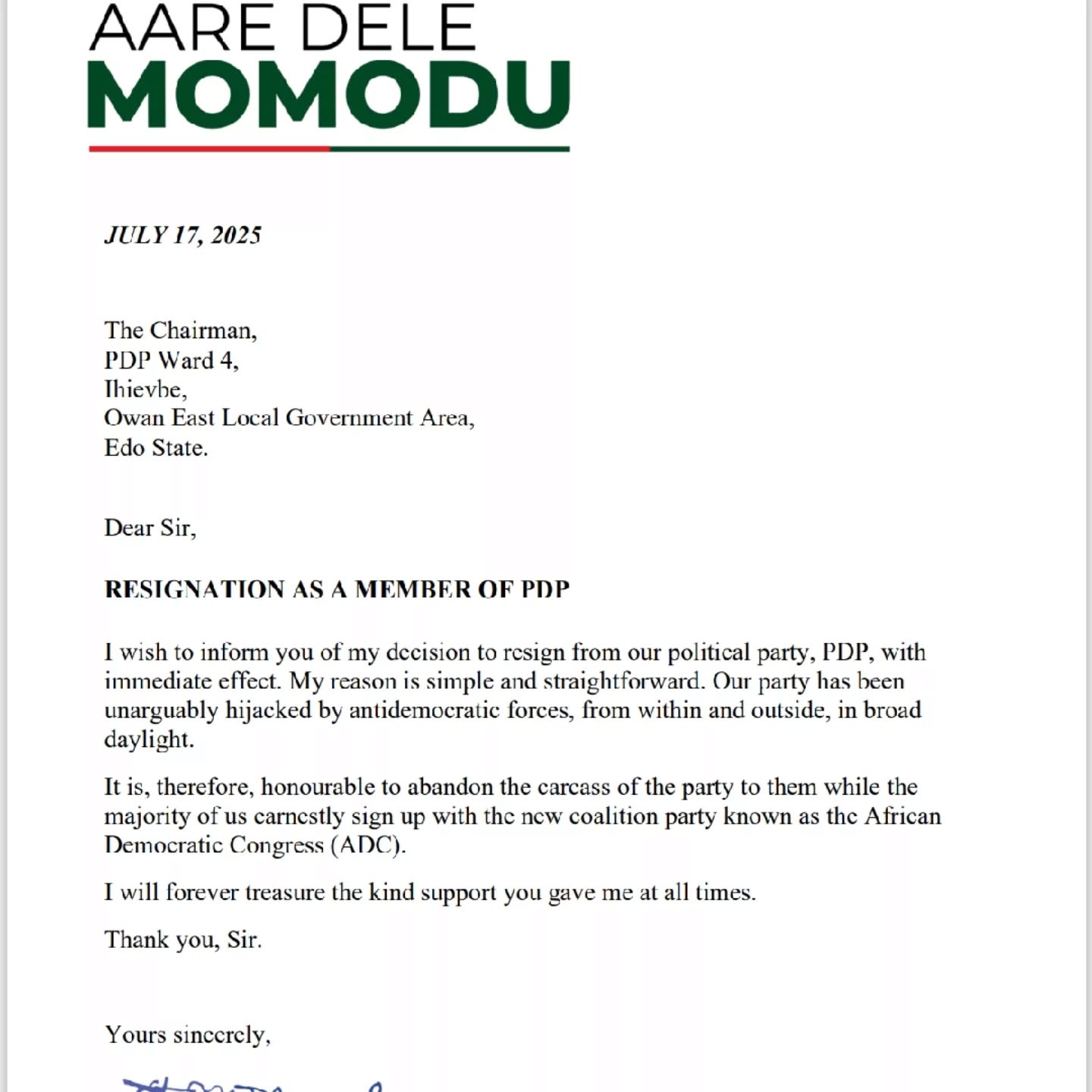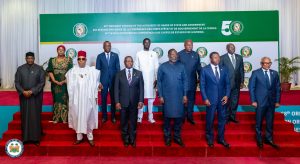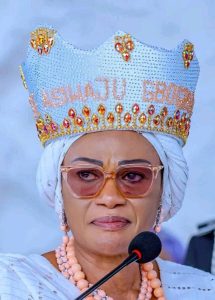Edo State, Nigeria – 17 July 2025
Prominent Nigerian journalist and politician Dele Momodu has formally resigned from the People’s Democratic Party (PDP), citing its alleged hijacking by “antidemocratic forces” as the primary reason for his departure. In a resignation letter dated 17 July 2025, Momodu announced his decision to join the emerging coalition under the African Democratic Congress (ADC), describing the PDP as a “carcass” that he and others are abandoning.
The letter, addressed to the Chairman of PDP Ward 4 in Ihievbe, Owan East Local Government Area, Edo State, states: “I wish to inform you of my decision to resign from our political party, PDP, with immediate effect. My reason is simple and straightforward. Our party has been unarguably hijacked by antidemocratic forces, from within and outside, in broad daylight.”
Momodu further explained that it was “honourable to abandon the carcass of the party to them while the majority of us earnestly sign up with the new coalition party known as the African Democratic Congress (ADC).” He expressed gratitude for the support he had received during his time in the PDP, adding, “I will forever treasure the kind support you gave me at all times.”
Momodu, the publisher of Ovation International magazine and a former presidential aspirant under the PDP banner, has been a vocal critic of internal party dynamics in recent years. His move comes amid growing turmoil within the PDP, which has seen defections and factional disputes following the 2023 general elections. Sources indicate that Momodu’s resignation is part of a broader exodus, with figures like former Vice President Atiku Abubakar and Labour Party’s 2023 presidential candidate Peter Obi also aligning with the ADC to form a united opposition front against the ruling All Progressives Congress (APC) ahead of the 2027 polls.
The ADC, rebranded as a platform for a “credible coalition convergence for national redemption,” has positioned itself as an alternative to the established parties. Interim leaders of the coalition have emphasised that it lacks a predetermined presidential candidate, aiming instead to consolidate opposition forces frustrated with the APC’s governance and the PDP’s internal strife. Recent reports suggest the coalition is gaining momentum, with defections from various parties signalling a potential shift in Nigeria’s political landscape.
Reactions on social media have been swift, with users on X (formerly Twitter) sharing images of images of Momodu’s letter and debating its implications. One post noted, “Dele Momodu has just announced his resignation from the PDP and officially defected to the ADC,” highlighting the move’s significance in the context of ongoing coalition talks. Another user remarked on the PDP’s dwindling membership, stating, “Wike, Makinde, Ifeanyi, Iwuazu, Ortom the G5 group & Fayose are the ones left to enjoy the party they pulled down.”
Oyo State Governor Seyi Makinde, a PDP stalwart, dismissed concerns about the ADC coalition, asserting it poses no threat to his party. However, analysts suggest that continued defections could weaken the PDP further, potentially reshaping alliances as Nigeria approaches the next electoral cycle.
Momodu’s defection underscores the fluid nature of Nigerian politics, where coalitions and party switches are common strategies to challenge incumbents. As the ADC gains traction, all eyes will be on whether this new front can mount a credible challenge to President Bola Tinubu’s APC in 2027.






